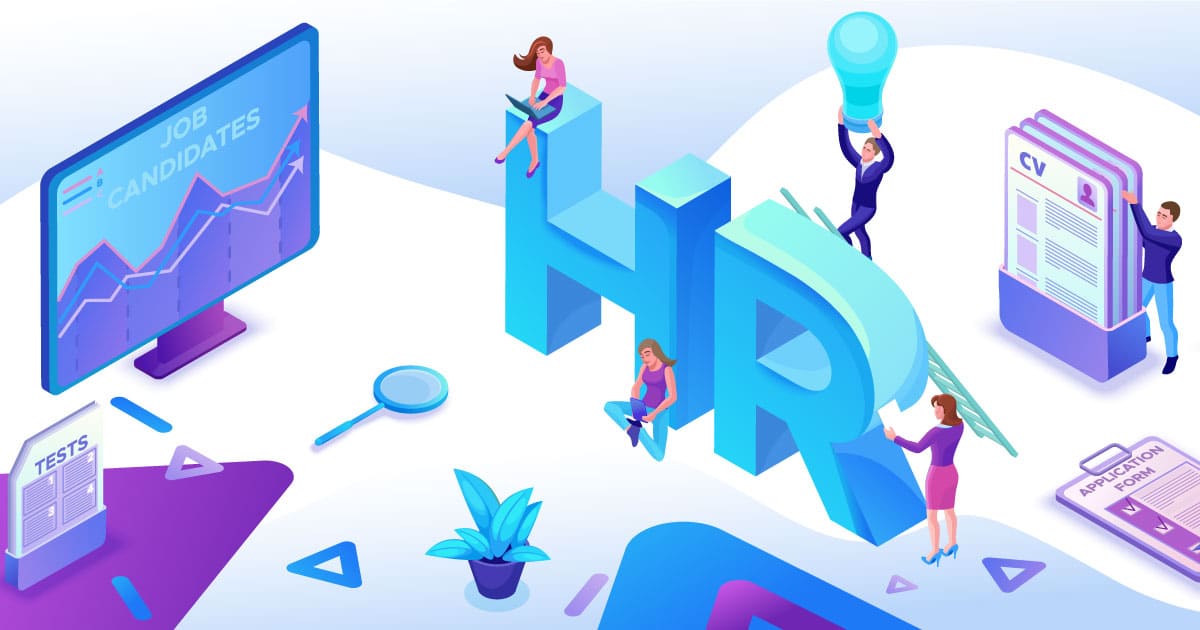Let’s explore the qualification requirements and skills you need in HR. Doing the right course could set you up for career success as a human resources manager.

To become a human resources (HR) manager or professional in Australia, you should get university qualifications in HR management or a related discipline. Formal credentials are not technically essential for a career in human resources but are important because of the nature of the work.
What are HR Qualifications?
HR qualifications in Australia encompass the academic degrees, professional certifications, and work experiences that you have in the field of human resources.
The most desirable bachelor’s degree is a Bachelor of Business, preferably with a human resources major, although psychology or similar degrees may also be acceptable to some employers. At a postgraduate level, HR managers often hold a Graduate Certificate, Graduate Diploma, or Masters in Human Resource Management.
Professional certifications, such as the Certified Human Resources Professional (CHRP) from a recognised body like AHRI, are also significant. They demonstrate that you’re current with practices.
Beyond formal education and certifications, your work history can also be considered a qualification. Whether through internships or full-time roles, relevant practical experience proves your ability to apply theoretical knowledge in real-world scenarios.
Why You Need University Qualifications

The role of an HR manager is to oversee human resources processes such as recruitment, training and performance management. The nature of this work means university courses are a must.
To manage talent recruitment, for example, you should know what it takes to get a bachelor degree. Earning a bachelor degree is a routine step in the process to become an HR professional. Preferably, you have a postgraduate qualification as well and understand the skills and discipline required to earn a masters.
If you’ve never been to university, how can you be taken seriously in your job as a human resources manager? Vocational qualifications might be sufficient for an HR assistant job but not for senior MR manager roles.
The complexity of the human resource manager job makes an advanced education important. You should have been through some management and leadership training. As well, your job performance will benefit from having studied topics such as employee relations and change management.
The standard requirement in job advertisements for HR managers is tertiary qualifications in human resources or a related field. If you don’t meet that qualification level, job opportunities could be limited.
Vocational education is generally insufficient
For a career in human resources, just holding vocational educational qualifications could render you uncompetitive. The occupations associated with a Certificate IV in Human Resource Management are: human resources officer, human resources coordinator, and payroll officer (Source: training.gov.au). These are essentially support roles only.
For a Diploma of Human Resources Management, which is just above a Certificate IV in standing, the Australian Government claims prospective occupations are “Senior human resources officer, Human resources manager, Human resources consultant, Human Resources Consultant, Human resources adviser/change manager”. But, unless you have plenty of relevant experience, good luck trying to compete for these roles against people with HR degrees.
Education Requirements to Work in Australia

According to our review of job advertisements, most employers prefer candidates with a university qualification, often in fields like Human Resources (HR), Human Resource Management (HRM), Psychology, or Business Management.
While a Bachelor’s degree is common, some roles prefer a masters level qualification. Notably, terms like ‘related’, ‘relevant’, or ‘equivalent’ often appear, suggesting that employers are open to a range of degrees as long as they’re applicable to the field.
Here is a list of the education requirements identified in ten job ads under the category ‘Human Resources Manager Australia’. These are simply the first ones we found.
Example education requirements in job ads
- Formal HR, psychology or related qualification
- Relevant degree or post graduate degree in Human Resources
- Tertiary qualification in Human Resource Management or equivalent and/or AHRI accreditation
- Human Resources, Business Management or related qualification
- Bachelors or equivalent Human Resources related qualification
- Tertiary qualified in Human Resources or related field (Psychology, Business etc.)
- Degree qualified in an HR discipline with a preference for a Masters level qualification
- Tertiary qualification in HRM or equivalent
- Tertiary qualifications in Human Resources
- Degree or Post-Secondary qualifications (Cert IV) in Human Resources Management
Source: Jora
Only about half the job ads we went through stipulated an education requirement. For senior roles, that’s quite normal. Recruiters search for professionals with extensive experience. Employers anticipate, but technically don’t require, candidates to have suitable academic credentials.
Recruiters are looking for university graduates
Of the ten education requirement descriptions, seven ask for university qualifications. Only one mentions a vocational certificate as being acceptable. Another ad specifically states that a masters is preferred.
With respect to field of study, the most common terms that come up are ‘Human Resources’ or ‘HR’ (7), ‘Human Resource Management’ or ‘HRM’ (3), ‘Psychology’ (2), ‘Business Management’ (1) and ‘Business’ (1).
The terms ‘related’, ‘relevant’ or ‘equivalent’ appear a combined 8 times, indicating that recruiters often don’t have a specific qualification in mind. Based on the fields of study, some recruiters may consider business degrees to be generally acceptable, along with psychology training.
Best Qualifications for HR
If you’re aiming to qualify for work in HR, you should seriously consider obtaining these qualifications. A specialised Bachelor of Business is ideal if you’re a recent school leaver. For university graduates and experienced professionals, a master’s degree in HR Management is the most desirable academic qualification. However, a Graduate Certificate course could be sufficient if you’re contemplating a career change.
Bachelor of Business degree

The standard undergraduate qualification for becoming a human resources manager is a 3-year Bachelor of Business (or Bachelor of Commerce) with a major in HR Management.
To qualify for the major, around half the subjects you do in the final year should be within the HRM stream. And you will need to take some HRM units in your second year as well. Examples of subjects you could study are: Employment Relations, Human Resource Management, Managing Change, Organisational Leadership, and Workforce Planning and Employee Development.
Personally, I don’t think it should really matter whether you major in HRM or not. Business degrees are general and equip graduates to work in any office role, including business administration and HR.
Just about any business subjects you do, from accounting to marketing, can help further your career. And every business graduate has done subjects that are highly relevant to the HR field and overseeing human resource functions.
Graduate Certificate in Human Resource Management

The quickest way to get a university-level qualification in HRM is to do a Graduate Certificate in Human Resource Management. You only have to do 3-4 subjects, compared to 12 for a masters and 24 for a bachelor degree.
This human resource management course may be ideal if (a) your bachelor degree is not particularly relevant to HR or (b) you don’t have a university qualification. You can be admitted based on academic qualifications, job experience, or a combination of the two.
A Graduate Certificate in Human Resource Management is also a pathway course for a masters degree. The subjects you complete are embedded in a masters program and count towards a masters if you want to continue studying after finishing the course.
Most grad cert courses consist of foundation subjects. Essentially, you study basic management and HR topics that would be most useful if your background in HR is limited. But you can also do an advanced course, with subjects such as People Analytics, Healthy Work and Wellbeing, and Diversity and Inclusion.
Masters in Human Resource Management

No-one can question your credentials for a human resources manager job if you hold a Masters in Human Resource Management degree. The specialist program provides extensive and advanced training in how to be an HR manager. It is simply the best qualification to work in HR.
Examples of the types of subjects a masters covers are managing change, business strategy, managing and rewarding performance, professional practices, employment law, strategic HR development, and employment relations. Students build skills and knowledge across all the major functions of an HR team.
What Human Resources Managers Do

The fundamental job of human resources managers is to extract value out of an organisation’s people. If that sounds exploitative, it’s not. Getting the best people, placing them in the right jobs, keeping them motivated and enthusiastic, and developing and retaining talent are all part of the job. HR managers strive to achieve a win-win, getting great outcomes for people and employers.
Key functions of a human resource manager are to manage: staffing plans, recruitment processes, individual performance reporting and incentives, training and development, conditions of employment policies, workplace culture, dispute resolution, implementing industrial relations procedures, and health and safety compliance.
The work of human resources managers is less touchy-feely than many people imagine. They do have to handle difficult situations, such as when employees are suffering with personal issues or if there is a heated dispute over an employment contract. But you are employed to solve problems; not just feel empathy with staff. Ultimately, HR managers report to their employer, and staff satisfaction is just one of the metrics that count.
What Skills Do You Need to Be in HR?

A career in human resources demands a unique blend of skills.
Effective communication skills, both oral and written, is critical. Sound decision-making capabilities are needed to make impactful choices for both individuals and organisations. Empathy is key in understanding employees’ perspectives, while organisational skills ensure efficient task management. Strategic thinking allows you to align with the company’s strategic needs, while leadership skills guide employees and cultivate a positive work culture. The ability to tactfully solve problems, even unexpected ones, is critical, given the myriad of challenges that arise.
Key technical skills include proficiency in HR software, data analysis, Microsoft Office Suite, and professional social media platforms. Specialist software streamlines HR processes, data analysis informs decision-making, Microsoft Office is crucial for everyday tasks, and social media has become indispensable for recruitment.
As for knowledge, you need to understand employment law, company policies and procedures, and the industry in which they operate. A good grasp of employment law ensures fairness and protects the company, understanding company procedures aids in efficient workforce management, and industry knowledge assists in competitive talent acquisition and retention.
HR Jobs Are In Demand

Human resources is a good career in terms of job opportunities and job security. Every medium and large organisation has an HR team. That’s because, wherever staff are employed, you need people to perform functions such as recruitment, coordinating learning and development opportunities, performance management, remuneration, employment contract management, dispute resolution, and cultural leadership.
Once you’ve joined the HR department, you’re highly likely to keep your position if your job performance is good. Internal promotion opportunities are likely to exist within organisations of a reasonable size. External job opportunities are also readily available, especially if you live in a major city with many large companies.
| HR occupation | Employed | Future growth | Weekly earnings |
| Human Resource Managers | 148,400 | 16.3% | $2,445 |
| Human Resource Professionals | 85,700 | 13.1% | $1,732 |
| Workplace Relations Advisers | 3,500 | n/a | n/a |
| Human Resource Advisers | 24,600 | n/a | n/a |
| Human Resource Clerks | 19,700 | 6% | $1,442 |
Employment of HR professionals and managers essentially grows in proportion with Australia’s labour force. Shown above are the employment levels, pay rates, and job growth projections for HR in Australia. This is Australian Government data that comes from the Labour Market Insights website of the National Skills Commission.
Human resources employment is upwards of 280,000 in Australia, with double-digit jobs growth projected over the next 5 years. The average salary of HR managers is $127,140 per year while HR professionals are paid $90,064 annually.
